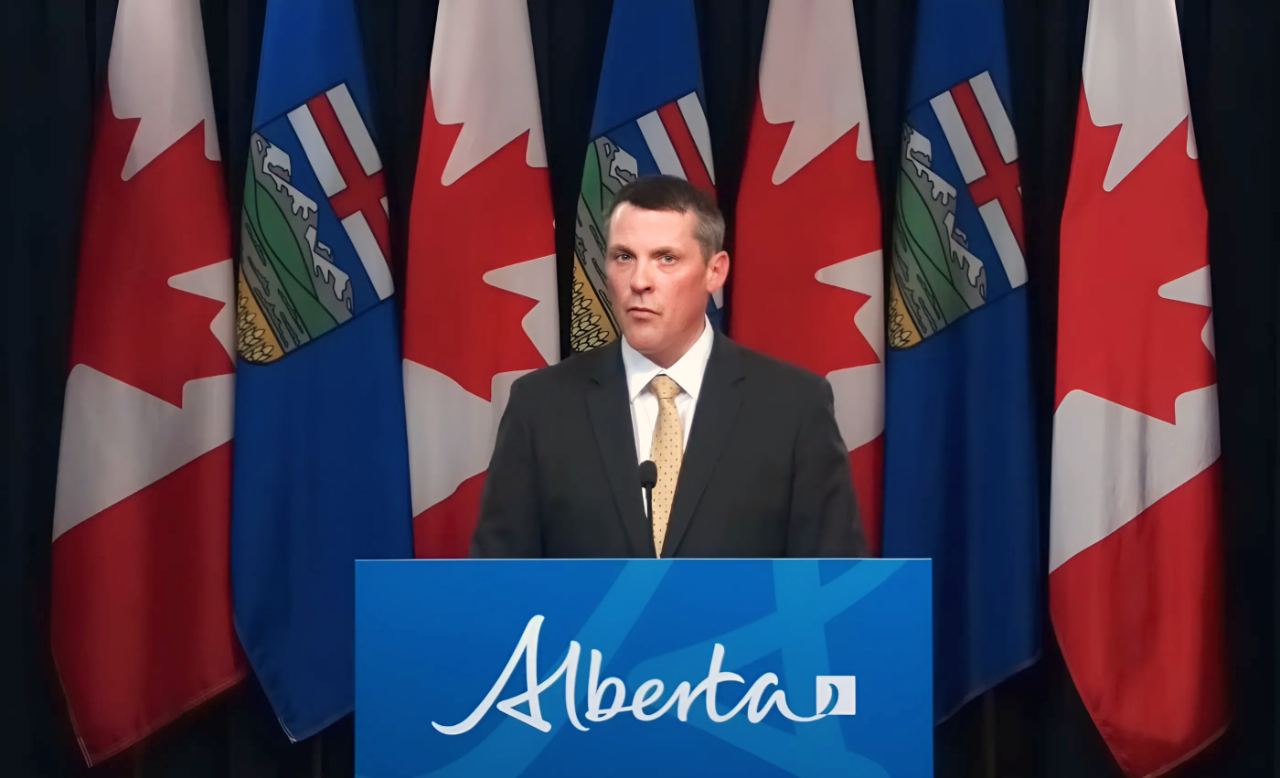Alberta’s Minister of Finance and President of the Treasury Board, Nate Horner, expressed strong reservations about the 2024 federal budget tabled by the federal finance minister today.
In a press conference, Horner criticized the federal government’s fiscal approach, highlighting concerns about rising inflation and the absence of a clear plan to balance the budget. “Once again, the federal government has poured gasoline on the inflation crisis in Canada, not least by increasing the carbon tax on gasoline,” Horner remarked.
He pointed out that the federal budget “overspends, overtaxes, overregulates, and will harm productivity, affordability, and economic growth.” Horner cited the lack of measures to address the short-term affordability crisis and referenced former Bank of Canada Governor David Dodge’s statement that this budget could be the worst since 1982. “I’m afraid he was right,” Horner added.
The Alberta finance minister also raised concerns about the federal government’s spending interfering with inflation targets. He quoted Bank of Canada Governor Tiff Macklem’s previous remarks, stating, “government spending is starting to get in the way of getting inflation back to target.”
Horner further criticized the federal government for saddling younger generations with deficits and increased levels of debt, contrary to their theme of “intergenerational fairness.” He highlighted the stark contrast in priorities between the federal government and Canadians, emphasizing that increased carbon taxes would drive up costs on home heating, groceries, and other goods and services.
Alberta, which managed to balance its budget this year, stands in contrast to the federal approach. Horner expressed disappointment with the federal government’s lack of decisive action on issues like slow economic growth and financial pressures faced by Canadians.
When asked about specific spending cuts needed to balance the budget, Horner stressed the importance of a legitimate path to balance. He expressed dissatisfaction with the federal government’s spending on strategic industries impacted by federal policies related to the clean economy, such as ammonia or hydrogen. Horner also noted the absence of updates on important tax credits and infrastructure funding.
In response to questions about Alberta losing out on dedicated family court judge funding and student loans, Horner emphasized the challenges posed by the federal budget’s limitations. He stated that the federal government’s caveats and limitations may require Alberta to reconsider its reliance on federal funding.
Regarding taxation, Horner expressed concerns about the federal government’s tax changes, particularly around capital gains, and their potential impact on investments in Alberta. He criticized the federal intrusion into areas of provincial jurisdiction and the lack of clarity in environmental regulations affecting energy projects.
Despite his criticisms, Horner acknowledged positive aspects of the federal budget, such as the $5 billion indigenous government-backed loan guarantee program focused on natural resource and energy projects. However, he cautioned about the need for substantial write-downs to make the Trans Mountain Pipeline economic, given federal regulatory challenges.
In conclusion, Horner emphasized Alberta’s commitment to responsible fiscal management and the challenges posed by the federal government’s fiscal policies. He reiterated Alberta’s focus on addressing affordability, housing costs, and farm care while seeking flexibility in federal-provincial relations.
The Alberta finance minister concluded the press conference by stating, “As tens of thousands of Canadians from across the country are moving to Alberta to call our province home, it is proof that in a nation beset by challenges, Alberta remains a bright beacon of responsibility and sanity.”
The federal budget, as critiqued by Horner, reflects ongoing tensions between federal and provincial priorities, particularly concerning fiscal responsibility, economic growth, and affordability. As the federal government faces scrutiny from provincial leaders, the path forward remains uncertain, with diverging views on how best to navigate Canada’s economic challenges.

